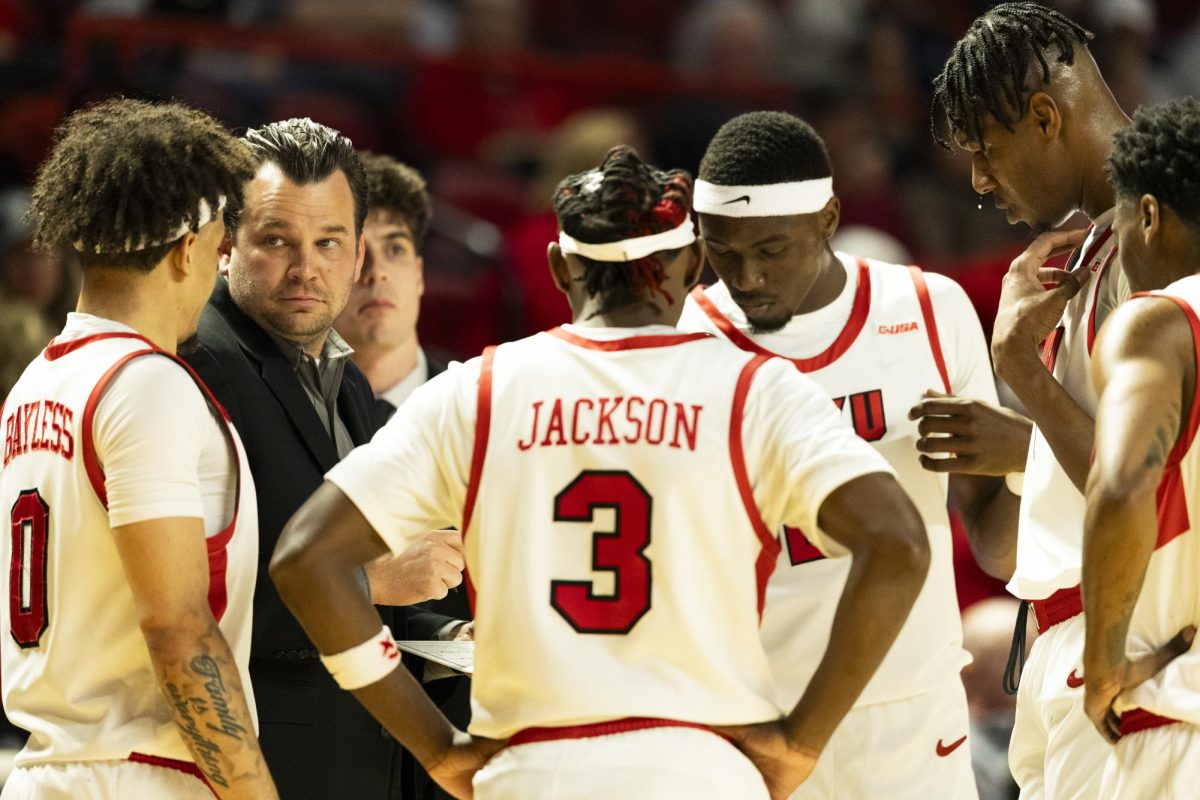Commentary in response to a letter submitted by President Gary Ransdell.
As I’ve said before, and will reiterate once again, when the College Heights Herald requested faculty and staff sexual misconduct records in November of last year, our intention was, and still is as such: not to drag anyone’s name through the mud or publish sensationalized details of sexual misconduct or assault. Our purpose and intent remain the same as it has for over 90 years, to hold the university accountable.
The Herald editorialized this issue twice in the past, which I think is rather an appropriate amount of ink to dedicate to the issue, in addition to our ongoing coverage of the matter. In these editorials, as opinion editor, I’ve argued that the release of such Title IX records would come to benefit victims, promote accountability at the university and, ultimately, WKU and the Herald share similar philosophies when it comes to the issue.
However, I could not stay silent when I was informed by a source that President Gary Ransdell had been telling people the Herald had been misrepresenting the story of the lawsuit. This was a serious claim, which is why I reached out to him to clarify these claims.
The possibility we had made factual errors remained, as it always can, yet neither Ransdell, nor anyone in his office, have explicitly told us how we misrepresented the story or reported any factual errors. Essentially, I was never told how we were at fault, just that we were. In an email to me, in response to my inquiry to write said letter, he said “we do believe that neither the Herald or the AG have portrayed this matter accurately.”
If you were to ask me to pinpoint the most significant qualm I have with his letter, I’d direct you towards this line, “Mr. Beshear and the newspapers suggest that a victim’s identity can remain confidential simply by removing or not disclosing the name of the victim and witnesses (if any) from the records.”
I will scream from the mountaintop until I lose my voice, the College Heights Herald will not ever publish the names of victims of sexual misconduct/assault. The only time we would ever, ever consider doing so is with that person’s explicit consent and permission. Even then we’d walk a fine line of publishing such information.
The attorney general gave WKU the opportunity to submit the Title IX records with the identity and personal identifiers of students redacted to protect them, an “in camera” or private review of the documents to determine what is and is not releasable. The attorney general does more than suggest a victim’s name be given confidentiality; his office gave WKU the opportunity to do just that.
Additionally, Ransdell’s ludicrous claim there’s a boogeyman out there scouring the internet, sifting through the information contained in these records, putting “two and two together” to identify witnesses and/or a victim, all the while connecting threads of string to photos and post-it notes on a bulletin board is a sensational fairytale, which does nothing more than scare victims.
In a story reported by the Daily News, Ransdell said making sexual misconduct records public would hurt WKU’s process for reporting sexual assault. No institution, program, policy or process is above reproach, above criticism, above being improved upon. The only way this hurts the process is if it is revealed the process has hiccups or flaws.
He went on to say if you want “to put a chill on sexual assault prevention, then make it clear to women or men who choose not to go to the police but who want to file a complaint that their personal choice is subject to open records.”
I would have Ransdell know Herald reporter and Digital Managing Editor Nicole Ares has had copies of Title IX investigations from several different Kentucky universities for months. These are already public records, and the information Ransdell claims can be garnered to identify victims is heavily redacted in the records she received.
So when he claims those with “ill intent towards the victim and/or witnesses” would threaten, humiliate or condemn them, we have to ask where those people are, seeing as the information we’ve received from other universities is already public record.
Beshear said without a confidential review by his office, institutions could hide issues related to sexual assault, and the “universities’ actions are attempting to turn Kentucky’s Open Records Act into a ‘trust me’ law.” I agree with him on this stance, the ruling in our case, and the others as well, has the dangerous potential to gut Kentucky’s Open Records laws.
After looking over some of the records the Herald has received, I cannot say in confidence I would trust WKU either. Which, after all, is part of my job not to completely trust the university; healthy skepticism isn’t fatal.
There have been noted trends in the records the Herald has received from other universities where faculty and staff members are simply given training sessions for sexual misconduct or still work for the university for months after the fact an investigation has turned up evidence of wrongdoing. So, you’ll have to excuse me if I don’t see WKU as the shining beacon on the hill when this seems to be consistent across the board.
Ransdell told a Herald reporter he wanted to determine the best course of action in this case without making a media spectacle for victims and the accused. But his recent actions and public comments suggest otherwise. I realize, however, my role in responding doesn’t help this either. For that, I am apologetic, but I could not stay silent when attempts have been made to discredit our reporting and scare victims.
The bottom line: the Herald is dedicated to getting this story right, protecting the identities of victims and reaching out to victims and the accused parties even if it draws the ire of the administration. The Herald recognizes in the final adjudication these records may not be exempt for public disclosure. We’ll continue to report the story to the fullest extent just the same.
The views presented in this commentary do not represent the views of the editorial board.
Correction: After publication, the Herald was informed President Ransdell wrote his letter more than a week prior and was not written in direct response to the author’s inquiry. This has been corrected and the Herald regrets the error.






